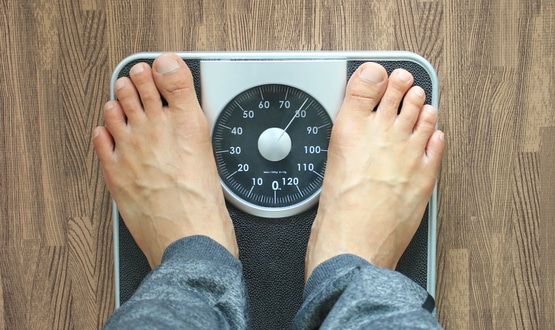Four digital programmes recommended by NICE for weight management

The National Institute for Health and Care Excellence (NICE) has recommended four digital programmes as safe, effective and cost-efficient ways of managing complex obesity cases and tackling growing NHS waiting lists.
The announcement means many more thousands of people with complex obesity can use the digital tool to help tackle their weight and lead longer, healthier lives. Oviva, Liva, Roczen and Second Nature are the four platforms to receive the NICE recommendation, allowing specialists to deliver personal, virtual weight loss services.
NICE calculations predict that as many as 48,000 people will now be able to access specialist weight loss help digitally, through the four platforms. Should all those eligible choose to take part, as many as 145,000 hours of clinician time could be saved.
Mark Chapman, interim director of medical technology and digital evaluation at NICE said: “Traditional face to face services treating people living with obesity are unable to keep up with demand. Waiting lists are long, some areas don’t have a service and patients need a solution.
“These four platforms could provide an option to accessing weight management support to those people who live in an area with no specialist weight management services or for those who are on a waiting list and are happy to be treated safely outside a hospital setting. ” Over the next four years, NICE expects to learn from the evidence generated by the programs to enable it to fully assess them, Chapman added.
Oviva chief clinical officer Lucy Jones, said: “We are delighted with NICE’s recommendation, it paves the way for us to help many thousands more people who are stuck in the NHS backlog, dealing with severe and complex obesity.
“Face-to-face support will only ever be accessible to a small percentage of people due to barriers like travel, childcare, stigma, time off work and language. Through remote and digital services, we can support more people living with obesity within the same fixed budget. They can track their habits and progress remotely while getting regular feedback and specialist support from a dietitian.”
Oviva provides digitally-enabled specialist weight management (Tier 3) services in the NHS and is now the largest Tier 3 services provider. It currently provides its services to six English Integrated Care Systems as well as five Scottish Health Boards.
Liva said it will be able to prescribe weight-loss injections as part of its NICE-approved programme, a pivotal aspect of the treatment. These injections, such as semaglutide and liraglutide (known as Wegovy and Saxenda respectively), are accompanied by a reduced calorie diet and exercise plan.
The company said its evidence-based, digital lifestyle change platform is supporting people on the journey to a diabetes-free life. 47% of Liva patients with prediabetes reversed their condition in 12 months and 39% of people living with type 2 diabetes reversed their condition to non-diabetic range. In addition, 80% of patients on Liva’s platform reduce their HbA1c Levels.
In 2021 the health service launched the NHS Digital Weight Management Programme online platform backed by £12m funding. The programme provides free, online support for people with weight-related illnesses.





